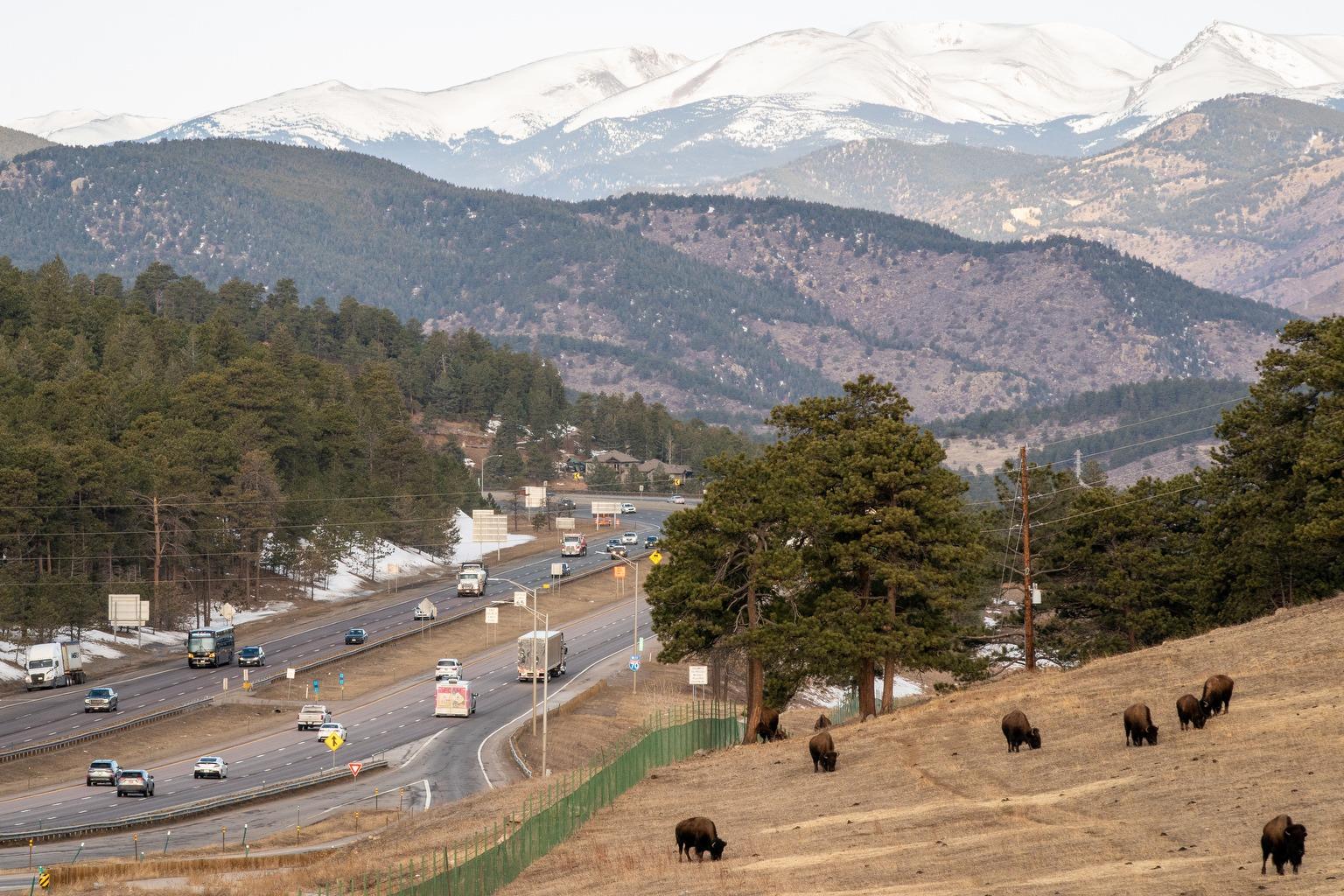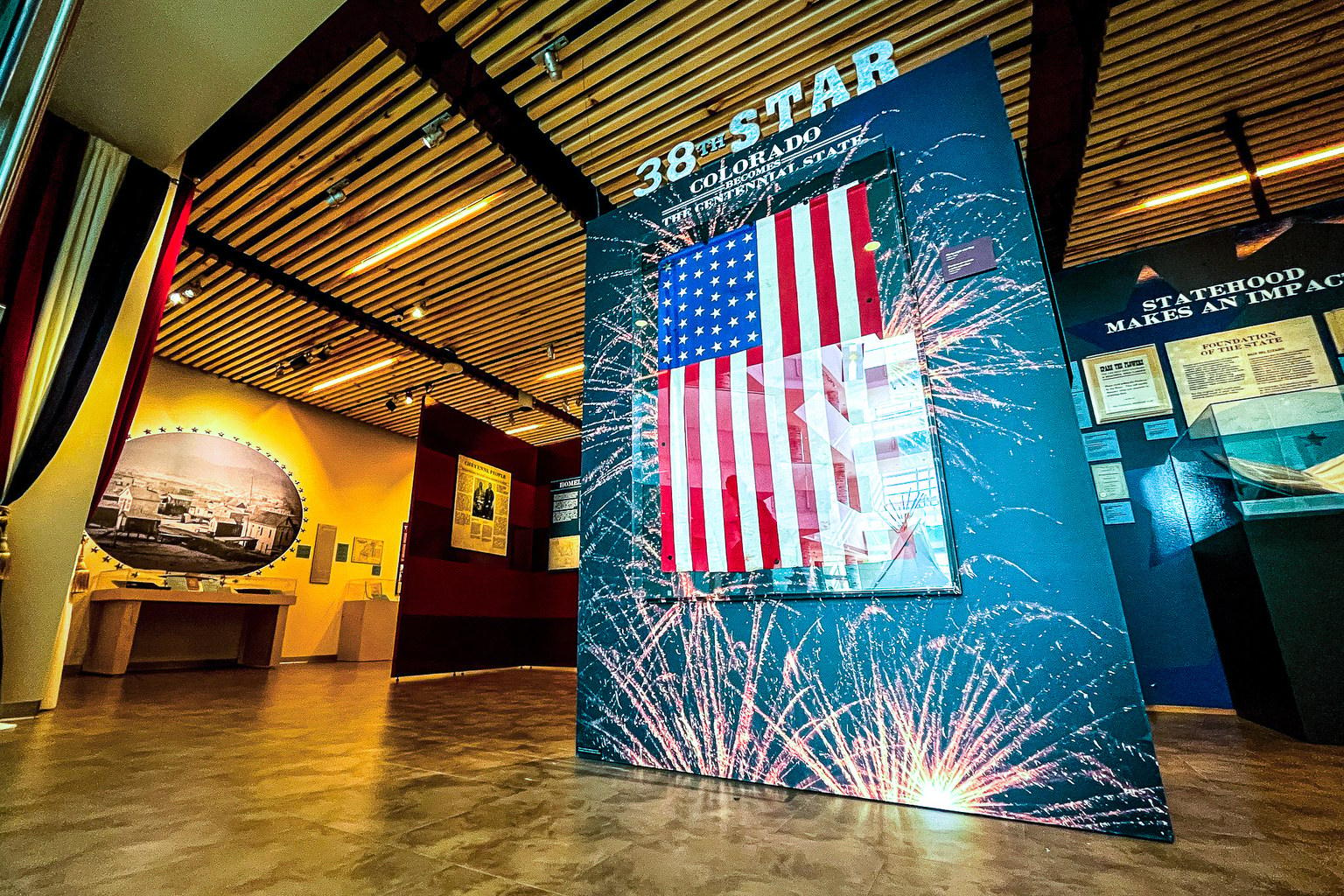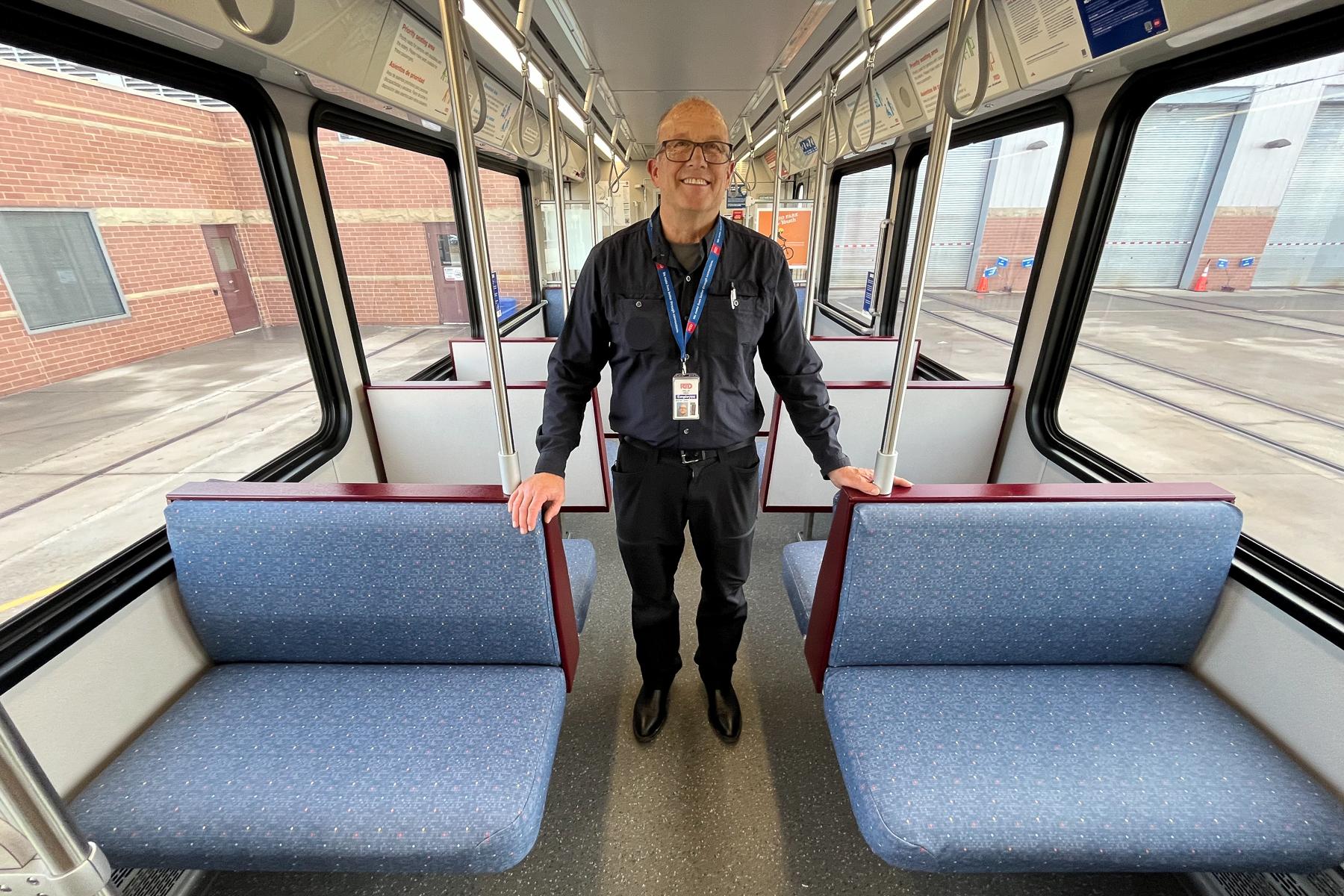
The Regional Transportation District is phasing out the ubiquitous gray, red and yellow cloth seat covers on its light rail trains in favor of patterned blue vinyl covers.
RTD officials chose the dyed wool cloth seat covers back at the dawn of the agency’s light rail age in the early 1990s. They were seen as a luxury over more typical vinyl or plastic covers, said Phil Eberl, general superintendent of light rail vehicle maintenance.
But that perception has changed — especially since the pandemic, Eberl said, when white-collar commuters stayed home and Denver’s growing homeless population turned to trains to stay warm. That coincided with a rise in vandalism and eating and drinking on light rail trains, he added, where cloth seats soak up rather than repel liquids and other unsavory materials.
“The condition that the vehicles come in after a day of revenue service has drastically decreased,” Eberl said.
That means his workers have spent more time removing seats and shampooing them, something Eberl calls a “backbreaking” task.
The wool seat covers RTD buys aren’t quite as hardy as they were in the 1990s either, Eberl said. Back then, seat covers would last a decade — they now need to be replaced about once a year.
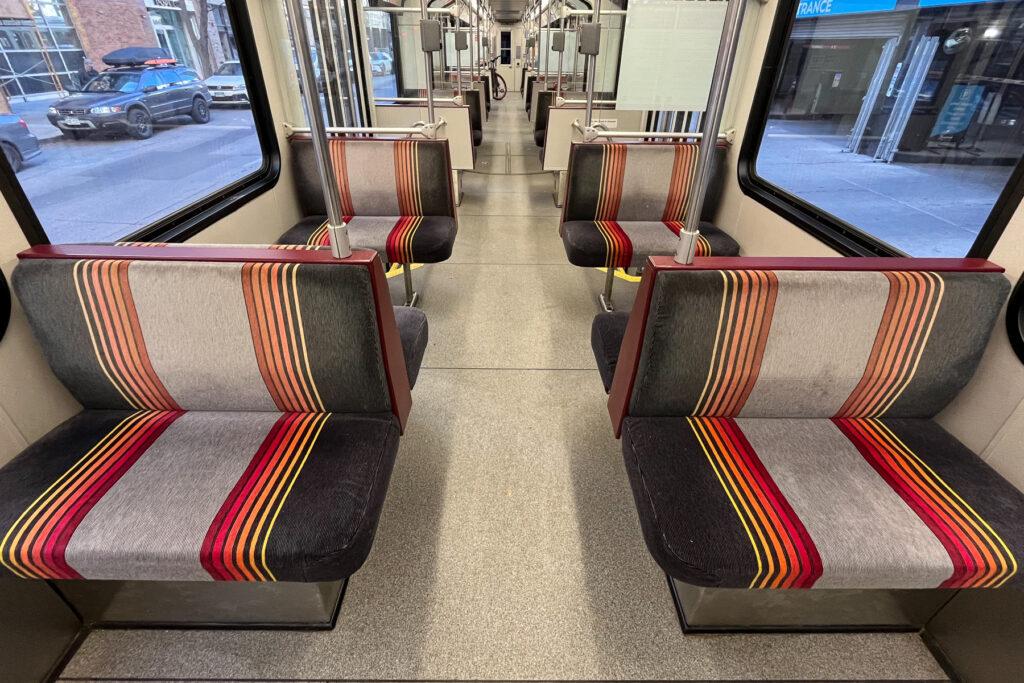
The vinyl seat covers cost the same as cloth — about $70 each, or $3,300 for an entire vehicle. But they should be easier to clean and should last much longer, Eberl said.
“This is kind of a free venture, maybe even a cost savings venture,” he said, estimating that it’ll take about four years to turn over RTD’s entire light rail fleet of more than 200 vehicles.
The new design is predominantly blue, with scattered contrasting dots in RTD’s other brand colors of yellow, orange and red. RTD employees voted in favor of that design over an imperial blue that’s already being used on commuter train seat covers — which are already vinyl, too.
Regular light rail riders said they won’t miss the cloth seat covers.
“It soaks up everything,” said Dominique Taplin of Denver. “I can’t lie; I’ve smelled different smells like pee.”
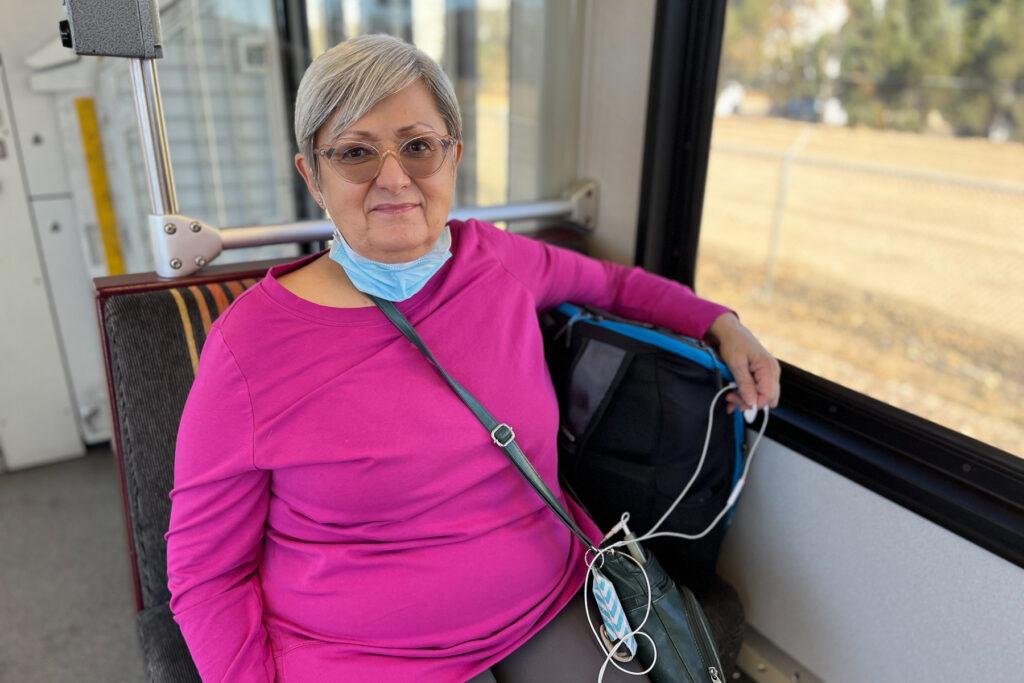
Linda Kasprack of Denver worried the vinyl might stick to her skin during hot summer months. But on the whole, she said, she likes the idea of a cleaner seat.
“I’m kind of anxious to try out the new ones and see how they feel,” said the long-time light rail commuter.
“They don’t look bad,” she said of the new seats after seeing a picture. “I’m not going to say they look super. But they don’t look bad.”
Eberl said train cars with new seats should start circulating through the system soon. RTD’s buses will make the switch to vinyl at some point too, he said.
Related coverage
- Colorado will give you $6K for your old gas-guzzler
- Polis wants to land billions for Front Range rail. He’s looking to local leaders for help
- RTD is cutting fares for the first time in decades
- Bigger vehicles are more dangerous to bicyclists and pedestrians. Should their owners pay for new safety projects?

